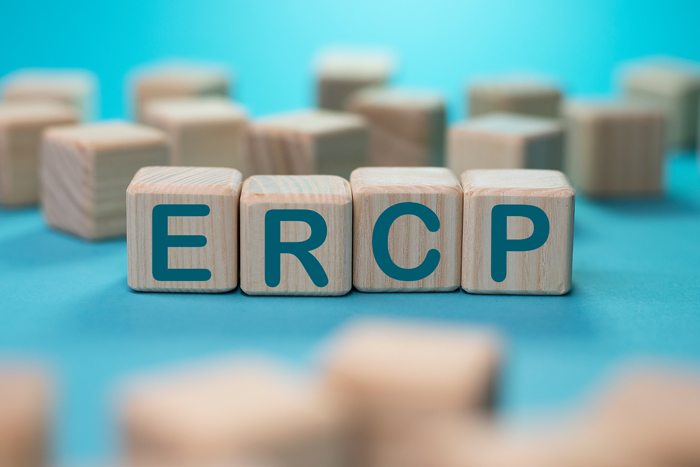ERCP Treatment in Kondapur, Hyderabad
The endoscopic retrograde cholangiopancreatography (ERCP) technique at Apollo Kondapur is used to identify gallbladder, biliary system, pancreas, and liver disorders. The test examines "upstream" from the liver, gallbladder, and pancreas, to where digestive fluid enters the intestines. ERCP can also be used to treat issues with these areas of the digestive system.

How is the procedure performed?
Once the source of the problem has been determined, the doctor can treat it with one of the treatments listed below.
Sphincterotomy. This entails creating a tiny incision (cut) in the entrance of the pancreatic duct or bile duct, which can aid in the proper drainage of small gallstones, bile, and pancreatic juice.
Placement of the stent. A bile duct or pancreatic duct stent is a drainage tube that is inserted into the duct to keep it open and allow it to drain.
Gallstone removal is a procedure that involves removing one or more stones from the gallbladder Gallstones can be removed from the bile duct by ERCP, but not from the gallbladder.
What are the benefits?
Benefits. An ERCP is used to treat a problem with the bile ducts or the pancreas. This indicates that the test allows for targeted therapy. If a gallstone is discovered during the test, it may usually be removed without requiring significant surgery.
What are the side effects of ERCP?
Endoscopic retrograde cholangiopancreatography (ERCP) is a procedure that can be used to address bile and pancreatic duct problems. However, the patient is in danger from ERCP side effects. ERCP adverse effects, such as organ perforation or infection, can be fatal. Doctors should consider whether or not an ERCP surgery is the best way to diagnose and treat a patient's illness.
ERCP Side Effects That Are Severe
Although severe ERCP side effects are uncommon, they can be fatal. If the diseases are not detected right away, the chance of mortality rises dramatically. Patients should report all complications as soon as possible following the operation.
Pancreatitis
One of the most frequent ERCP adverse effects is pancreatitis or inflammation of the pancreas. After ERCP, around three to ten per cent of patients develop pancreatitis.
Perforation of the Organs
Organ perforation, or a rip or hole in an organ's wall, is a dangerous ERCP side effect. Perforation of an organ is an uncommon occurrence. When this happens, surgical intervention is frequently required to close the perforation and avoid additional harm.
Infection
One of the most prevalent reasons for mortality following an ERCP surgery is infection. Cholangitis, or inflammation of the bile duct, is a possibility. Cholangitis is a medical emergency that requires quick attention.
Right candidates
The surgeon who will do your ERCP will discuss the procedure's risks and advantages with you. Then you'll sign a paper acknowledging that you've read and understood the procedure. Before surgery, your surgeon's office will advise you on what to do and what to avoid. Your surgeon would provide you with specific instructions, but here are some general guidelines.
Request an appointment at Apollo Spectra Hospitals, Kondapur
Call 1860-500-2244 to book an appointment
Before surgery, stop eating and drinking at the time your doctor specifies. You may take medicines that your doctor has approved the morning before your operation. Only take these with a sip of water.
Before surgery, you might be needing to stop taking certain medications. These include blood thinners, vitamins, and immune-suppressing medications.
The duodenum (the first section of the small intestine), the papilla of Vater (a tiny nipple-like structure with openings leading to the bile ducts and the pancreatic duct), the bile ducts, the gallbladder, and the pancreatic duct are all examined during an ERCP procedure.
The stomach must be empty for the greatest possible inspection. On the evening before the exam, the patient should not consume anything after midnight. No drink should be consumed if the operation is conducted early in the morning. If the exam is scheduled for midday, have a cup of tea, juice, milk, or coffee 4 hours before the appointment.
Symptoms
Our Top Specialities
NOTICE BOARD
CONTACT US
CONTACT US
 Book Appointment
Book Appointment


.svg)
.svg)
.svg)
.svg)








